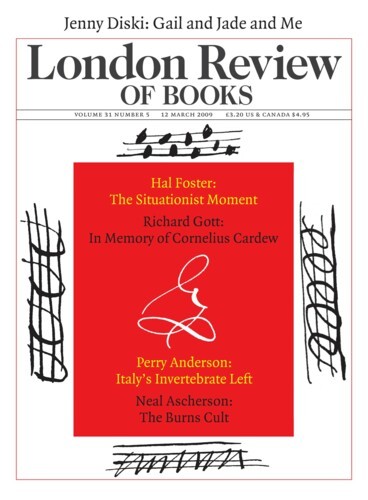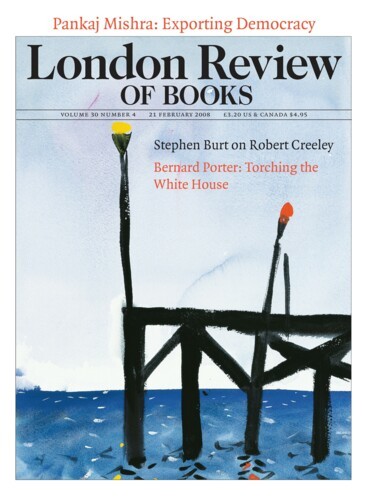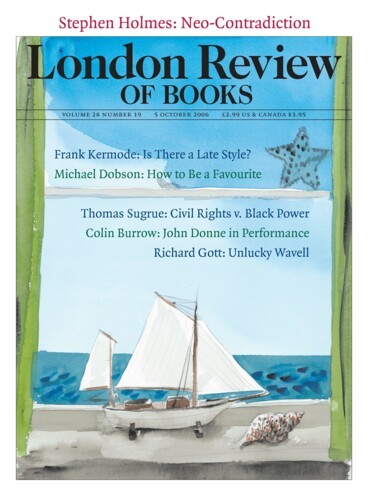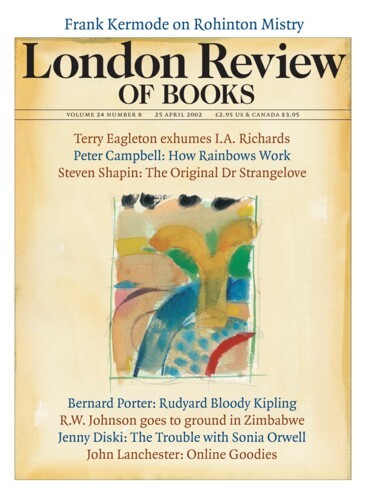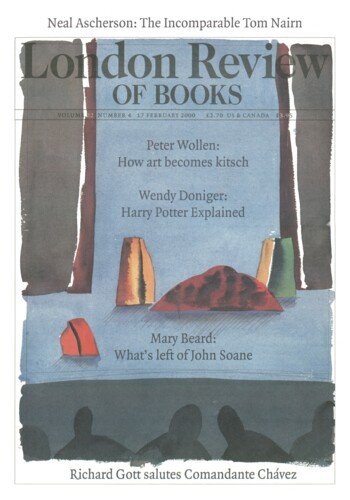Liberation Music: In Memory of Cornelius Cardew
Richard Gott, 12 March 2009
What do we remember about Cornelius Cardew? That he was a brilliant avant-garde composer who pioneered free improvisation and led a Scratch Orchestra of musicians and artists; that he wrote a polemical tract alleging that Stockhausen ‘serves imperialism’; and that, after spending a decade as a prominent Maoist, he was killed by a hit-and-run driver, in an apparent accident that conspiracy theorists have liked to construe as the work of the intelligence services.
